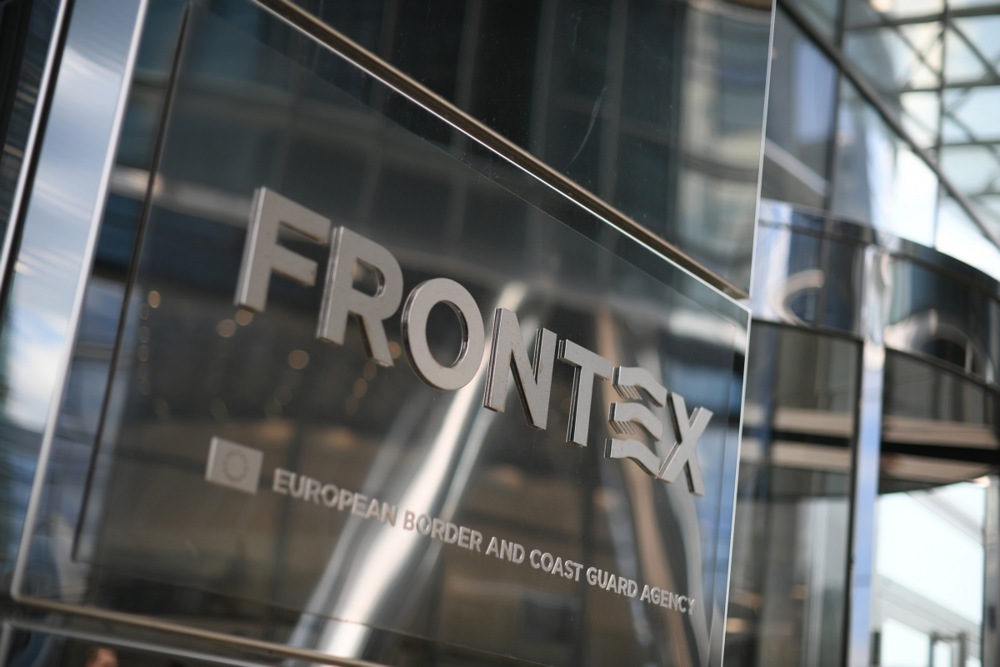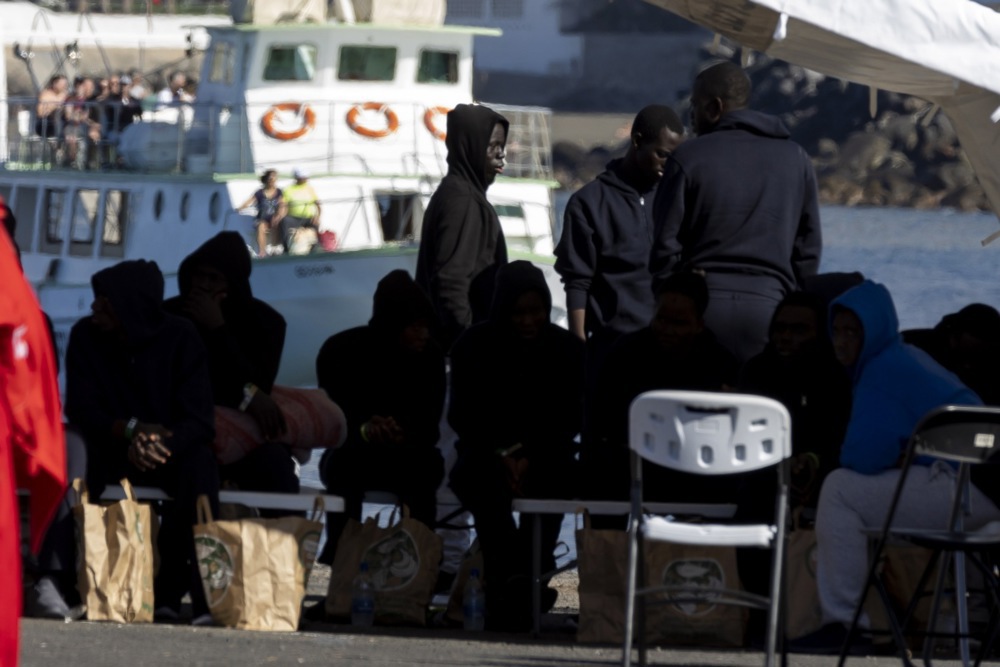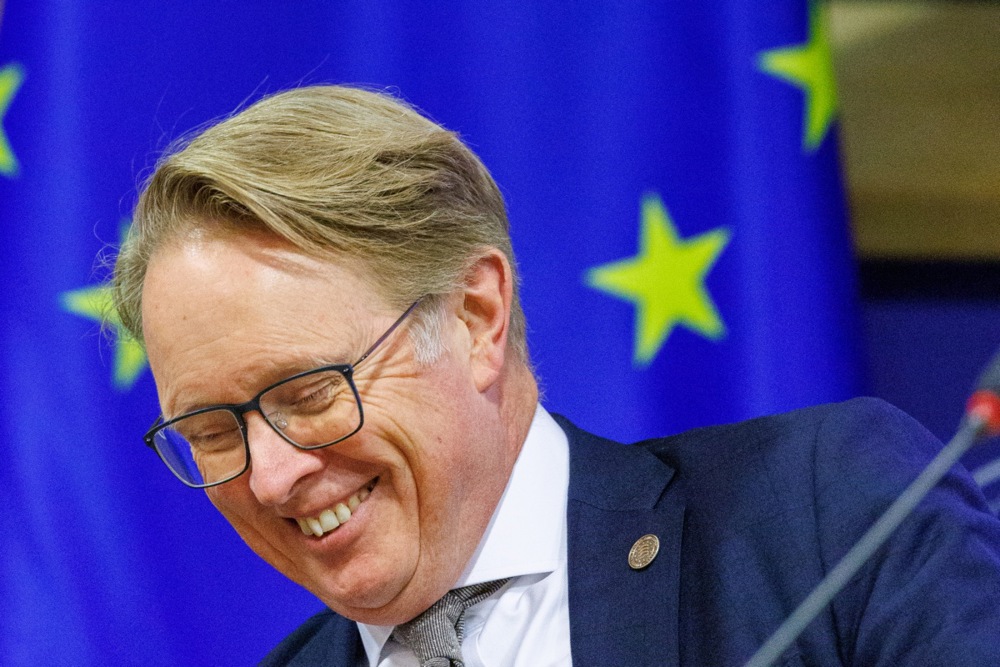There has been a sharp decline in illegal border crossings into the European Union, the border agency Frontex has reported.
According to the agency, there have been only 166,000 illegal crossings in the first nine months of this year, 42 per cent fewer than the same period in 2023.
It described most of the arrivals as originating from Syria, Mali, and Ukraine.
The greatest decline in irregular crossings occurred on the Western Balkan and Central Mediterranean routes, with these seeing a drop 79 per cent and 64 per cent respectively.
However, the Eastern Land Border and Western African routes saw big increases of 192 per cent and 100 per cent respectively.
Irregular crossings in the Eastern Mediterranean, which also continued to rise this year, increased by 15 per cent in the first nine months of the 2024, with Frontex recording a total of 45,600 unlawful entries.
More illegal migrants were also crossing the English Channel, leaving the EU and trying to reach the UK. The number of irregular Channel crossings detected between January and September rose by 2 per cent to 47,514, Frontex said.
? EU external borders January-September 2024:
? Irregular border crossings fall by 42%
? Western Balkans and Central Med routes see the biggest drops
? Eastern Land Border and West African routes with the highest increases? https://t.co/pW1m4bUxCI pic.twitter.com/sAhjRfVysm
— Frontex (@Frontex) October 15, 2024
The numbers revealed a strong link between firmer national and EU policies and the rate of illegal migration.
Since Giorgia Meloni became Italy’s prime minister in October 2022, the country’s approach to illegal immigration has grown stricter, with new policies influencing migration in the Central Mediterranean especially.
Key new measures by Meloni included a deal allowing her to send asylum seekers to Albania for processing, along with tightening controls on NGO-owned ships — some of which are partially financed by the German government — that attempted to bring migrants to Italian shores.
The drop in crossings from the Balkans also coincided with a new agreement between the EU and Serbia.
In June 2024, the EU signed an agreement with Belgrade allowing Frontex to conduct joint operations with Serbian border guards, and support Serbian border officials at borders with non-EU countries, like North Macedonia and Bosnia and Herzegovina.
The EU has since begun negotiating similar coordination agreements with other countries in the region.
Frontex also deployed specialised officers and resources to critical areas in the Balkans, to enhance surveillance and border management capabilities. This included joint operations increased monitoring of migration routes, with extra attention on combatting people smugglers.
By contrast, Spain’s progressive government has adopted a more welcoming rhetoric towards migrants, who continued to arrive in record numbers.
Prime Minister Pedro Sánchez announced measures making it easier for immigrants to settle in Spain, and has championed migration’s economic benefits.
“Immigration is not just a question of humanitarianism…, it’s also necessary for the prosperity of our economy and the sustainability of the welfare state,” Sanchez said in a speech to parliament on October 9.
At the same time, more migrants were dying during their attempts to reach Spain.
Polish Prime Minister Donald Tusk has announced he will suspend the ability of migrants to claim #asylum in the country, insisting that the move is now necessary for him to “regain control” of the situation.
Read the full article ?? https://t.co/JRdwLaDlLJ #migration… pic.twitter.com/WiSpmf6UlZ
— Brussels Signal (@brusselssignal) October 14, 2024
Similarly, there were more illegal crossings at the EU’s Eastern Land Borders, the portion of the EU bordering Russia, Ukraine, Belarus and Moldova.
Some were people leaving Ukraine, while others were migrants deliberately sent by Russia to Europe, using them as a weapon against EU countries.
Some critics say that Turkey’s president, Recep Tayyip Erdoğan, also has not been above using migrants as a diplomatic lever against the EU.
The overall drop in migration into the EU came as its member states shifted to the Right in elections, with the vote share rising for nationalist, migration-sceptic parties.
Many counties pushed for tougher stances on migration and greater restrictions on migration and asylum.
Even Germany’s progressive government reintroduced border controls with its Schengen-area neighbours, claiming “exceptional situations”. So have Austria, Sweden, Slovenia, Italy, Norway, Denmark and France.
Migration will also be a major issue at the upcoming European Council meeting, October 17-18.
Governments will discuss strengthening control of the EU’s external borders, and increasing and accelerating returns of failed asylum seekers. They will also discuss bolstering measures against other countries using migrants as political instruments, and against human trafficking and smuggling.
Italy has started to transfer the first group of migrants to Albania as part of its initiative to accommodate them abroad while processing their asylum applications. https://t.co/k5gir9UVs0
— Brussels Signal (@brusselssignal) October 16, 2024





